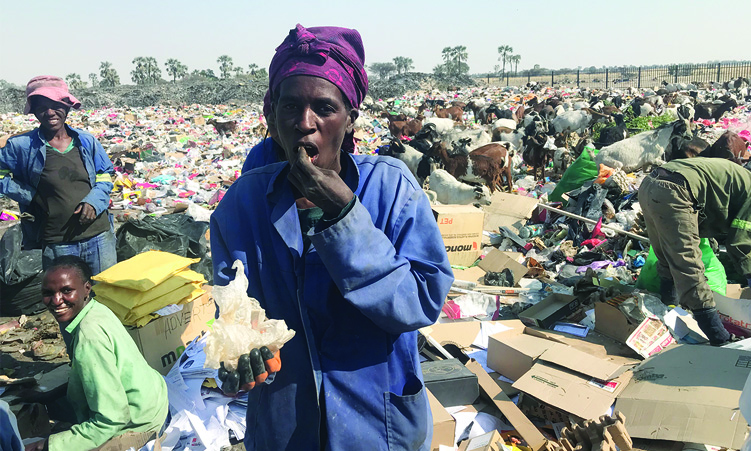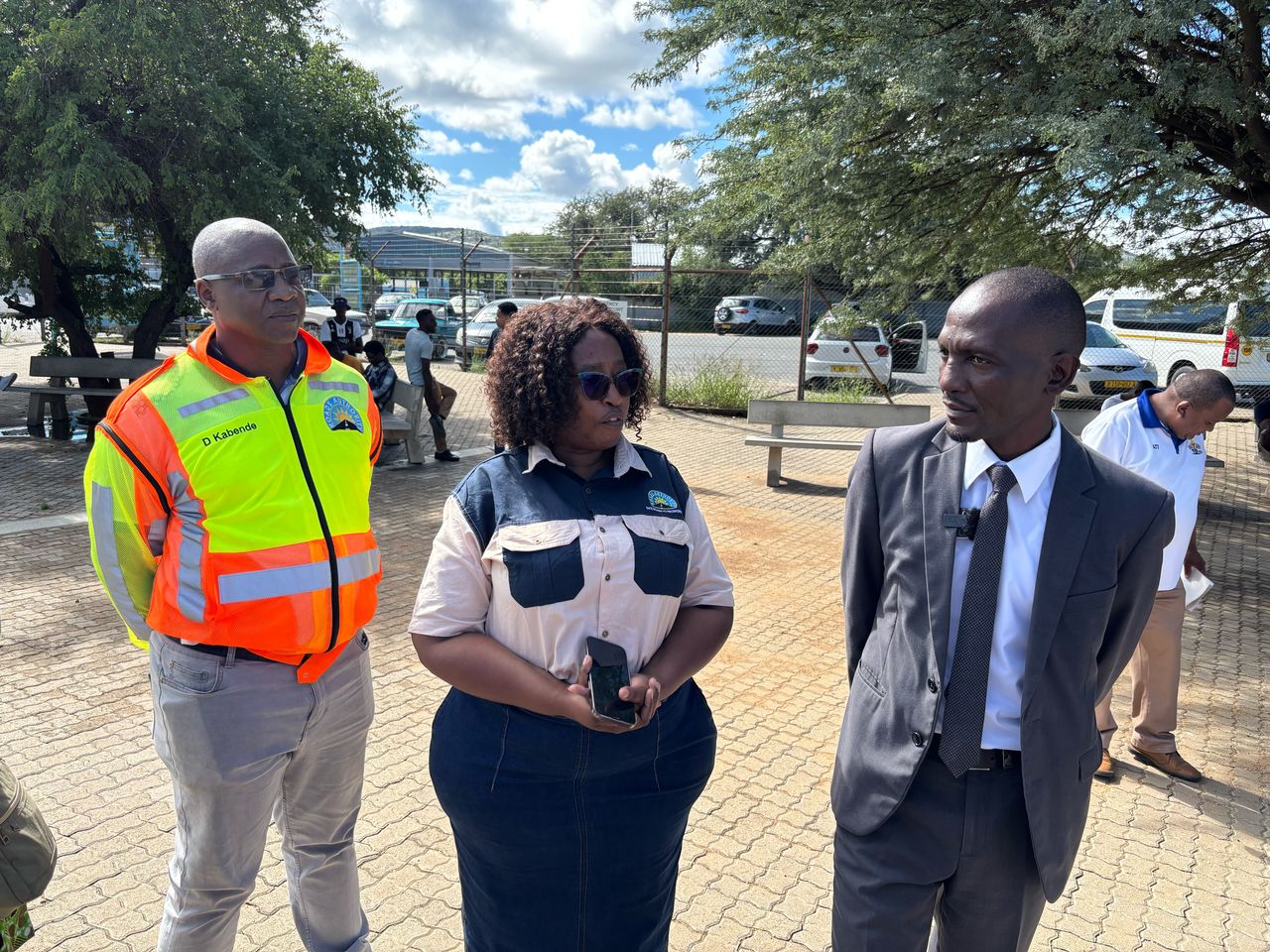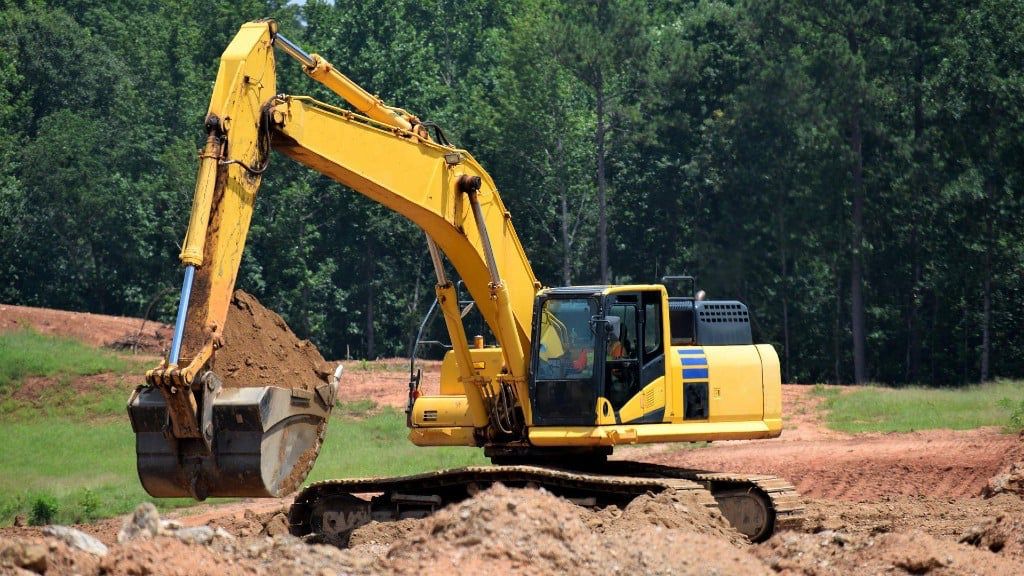Rubbish has been Natalia Gabriel’s and her mother’s bread and butter since 2004.
Gabriel (42) says she and her mother (63) head to the Othingo village dumpsite every day.
The site belongs to the Oshakati Town Council and is situated about 3km from their shack at Uupindi.
The pair says they collect food and other items to use or sell at Oshakati’s scrapyard.
“We collect paper, boxes, food for the family, metal and anything we can sell at the scrapyard. If we don’t do this, we won’t have anything to eat. “To you, it’s trash, but to me and my family, it’s our bread,” Gabriel says while eating some dry potato salad she discovered among the rubbish.
Wearing dirty blue overalls, she says the Oshakati dumpsite has been a source of food and income for her and her nine children for the past 20 years.
She says she earns 50c per kilogram of items she collects.
“It takes days for that money to be enough to buy groceries for the house. I make between N$200 and N$300 per month.
“When we don’t have food at home, I take food from here,” she says.
Gabriel, an Angolan citizen, says she and several other women are deprived of their livelihood when some other people take items from the rubbish dump.
“They get a monthly salary, but they take things. We are not happy with that. We eat from selling those things. We are suffering,” she says.
She says it is better to collect paper.
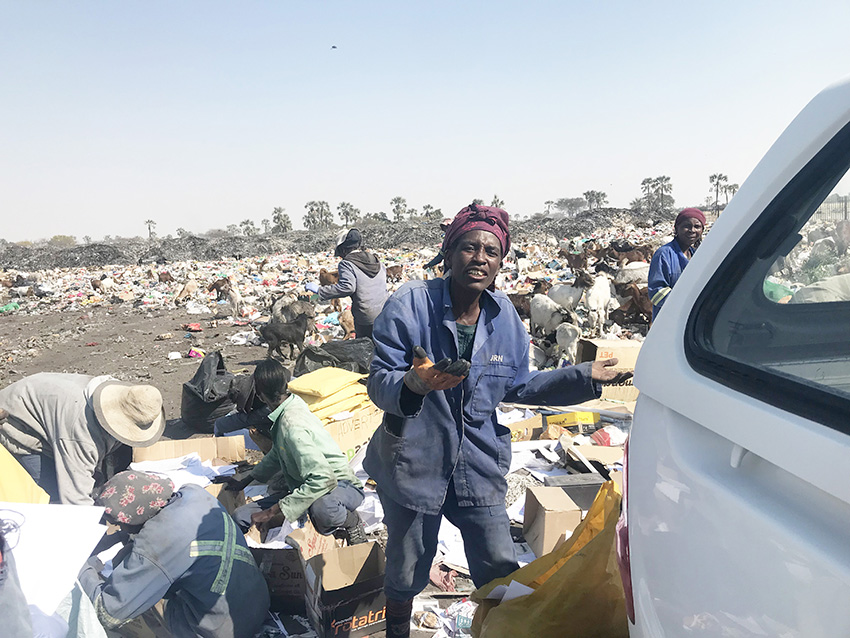
UNDOCUMENTED
Lileimo Ainyala, moved to Namibia three years ago to stay with her daughter and her grandchildren.
She is originally from Omoolo, which she says is commonly known as Omongwa village.
Ainyala does not have national documents.
Gabriel and her 11 family members are all undocumented.
The grandmother says the dumpsite is the family’s source of food, since they do not receive drought-relief food.
“My daughter advised me to move to Namibia to collect refuse for survival. When we are two, we can collect more,” Ainyala says.
She says three of her children live in Angola, but cannot sustain her either.
She and her daughter have approached the Angolan consulate at Oshakati for national documents, but have not been successful in this endeavour.
“My grandchild is 22. She was born here, but she doesn’t have Namibian national documents,” Ainyala says.
She is unaware of the Ministry of Home Affairs, Immigration, Safety and Security’s mass registration campaign for national documents.
MORE COLLECTORS
Maria Kamati (23) says she has been collecting food and items to sell from the dumpsite since she was 13 years old.
She says her job is hazardous and risky, as some food causes stomach aches and diarrhoea.
“We just have to come here as there is no other way we can survive,” she says.
Kamati says she was born at Walvis Bay, but has not been issued national documents.
Peneyambeko Haludilu (43) from Okalongo says collecting rubbish has been her only source of income since 2002.
“I have been coming here, since the area was not fenced off,” she says.
Haludilu has two children and has Angolan citizenship.
Naambo Titus (29) from Elondo West in the Omusati region says she has been living off the dumpsite for the past seven years.
Titus says she dreams of working in a department store, but she dropped out of school in Grade 8.
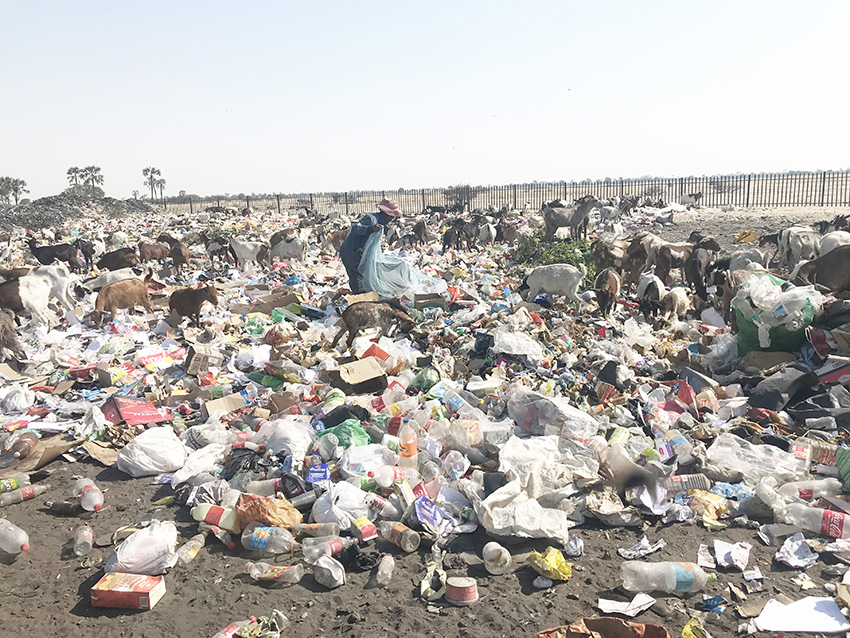
HEALTH RISK
Kornelius Kapolo, the Oshakati Town Council’s public health and environmental manager, says people living at the dumpsite should not eat the food they collect there, as it is regarded as risky.
He says only general waste is collected for the landfill.
“It’s a rare scenario, as food is not supposed to be disposed of with general waste,” Kapolo says.
He says the town council is faced with the challenge of goats entering the landfill to eat the rubbish.
“Although we have fenced off the landfill, there are gaps in the fence through which goats can fit, but we will put mesh there,” he says.
Kapolo says some collectors at the landfill have been registered as recyclers.
They have been told what is expected of them.
He says children and pregnant mothers are not allowed to enter the landfill and if the recyclers are taking food, they are contravening the site’s regulations.
The town council will follow this up, he says.
The Namibian could yesterday not get hold of the Angolan consul at Oshakati.
Oshana Regional Council chairperson Andreas Uutoni has in the past said the region’s poverty level is too high.
He said the regional leadership plans to address poverty by creating more youth employment schemes and training courses.
Uutoni said the population increase would boost the region’s economy and attract possible investors.
Stay informed with The Namibian – your source for credible journalism. Get in-depth reporting and opinions for
only N$85 a month. Invest in journalism, invest in democracy –
Subscribe Now!




